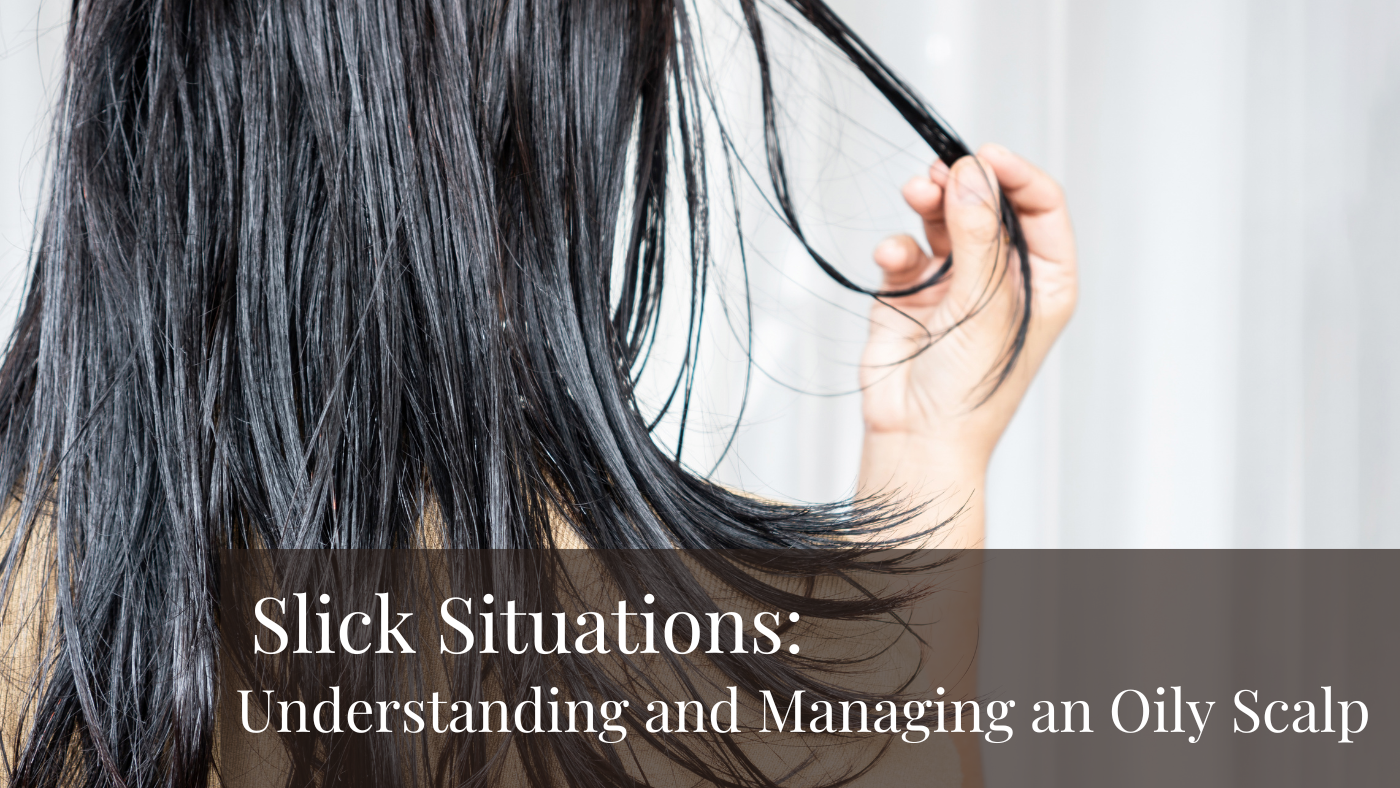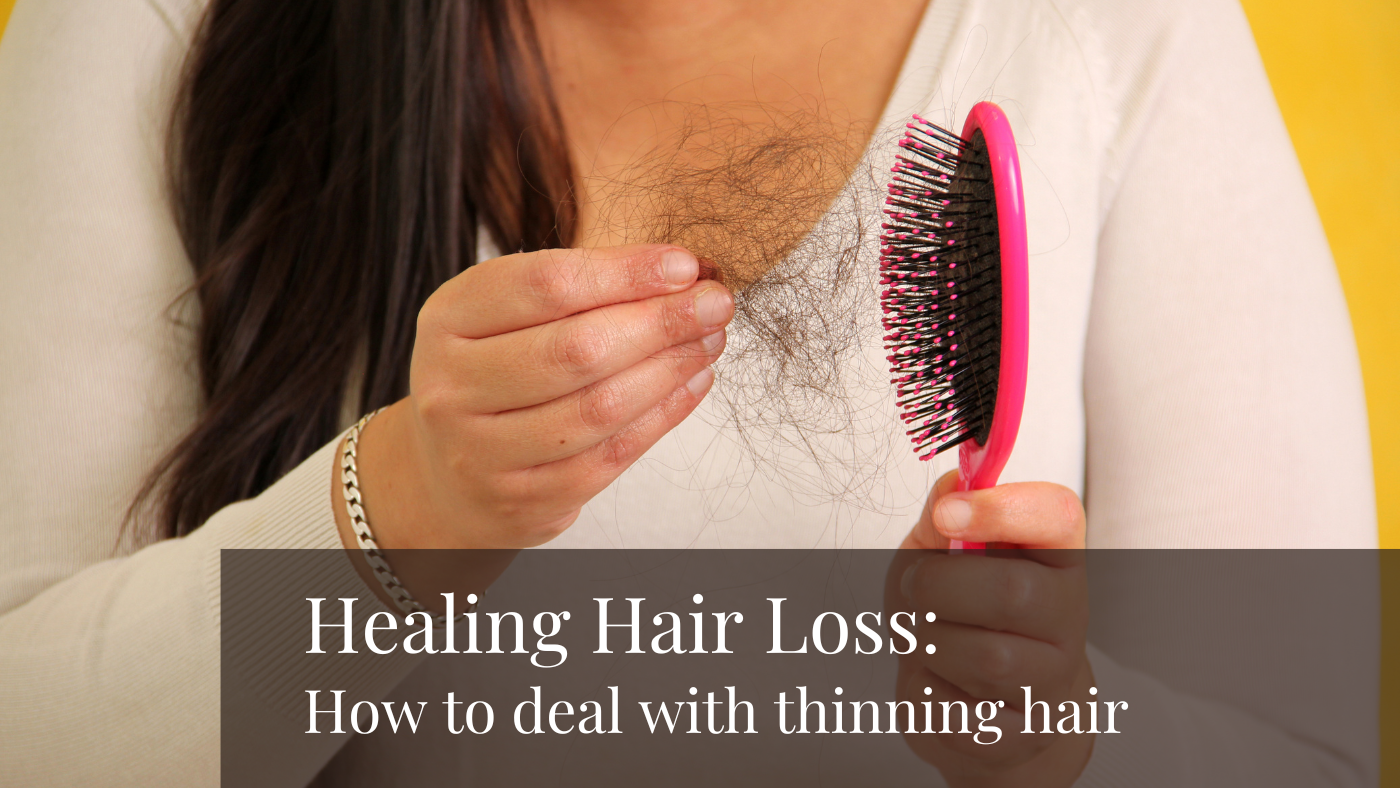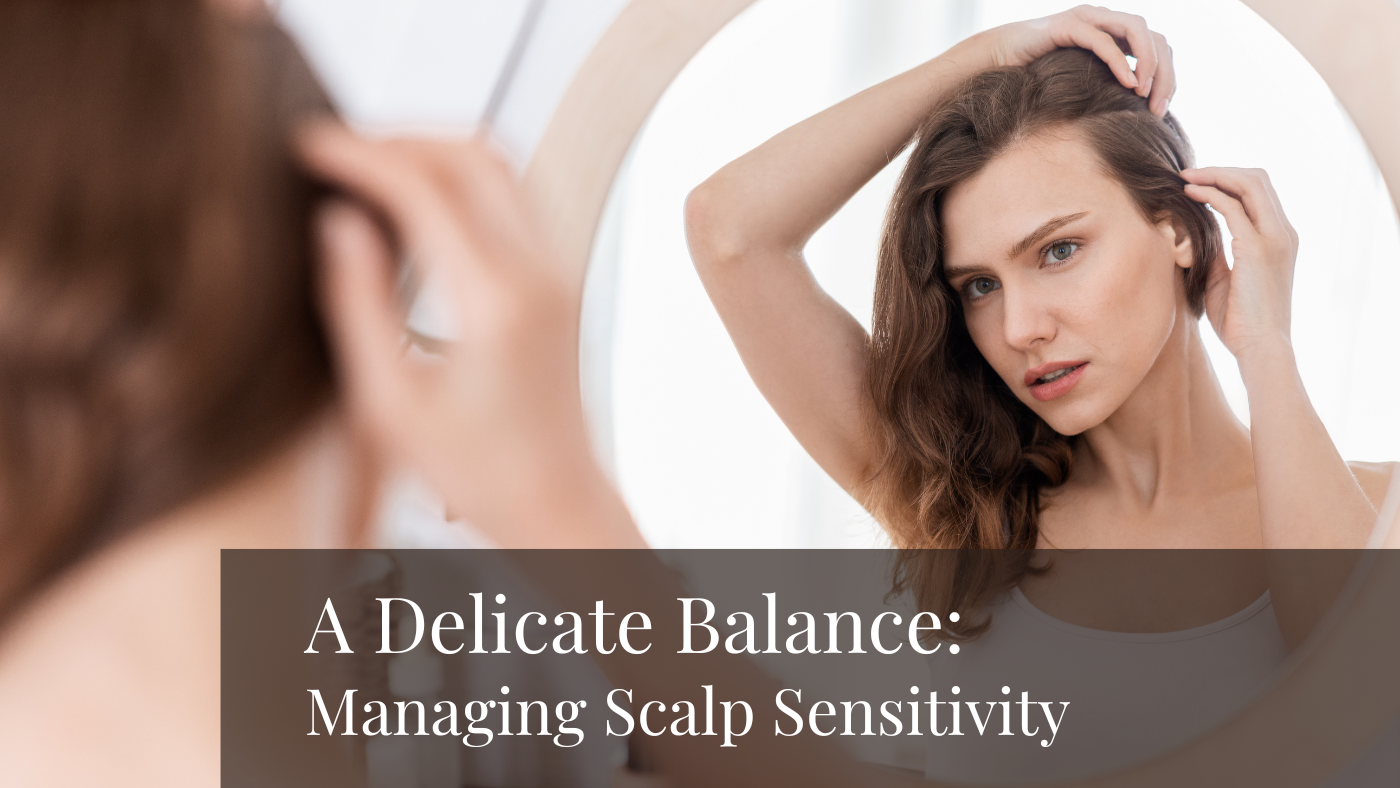
Slick Situations: Understanding and Managing an Oily Scalp
Are you constantly battling with an oily scalp that leaves your hair looking lank and greasy, no matter how thoroughly you try to cleanse it? Don’t worry, you’re not alone. Dealing with this all-too-common scalp concern can be frustrating, but understanding the symptoms, causes, and effective ways to treat it can help you get rid of the grease once and for all and restore balance to your scalp.
SIGNS OF AN OILY SCALP
There are a few common signs that your scalp is over-producing sebum (oil). Shortly after shampooing, the hair starts to look unclean and becomes difficult to style, and the scalp can begin to feel itchy and irritated. You may find that the skin on your face is also oily, becoming shiny during the day, and even triggering breakouts.
CAUSES OF AN OILY SCALP
So, what causes this overproduction of oil? Many factors can contribute to surplus sebum, such as genetics, hormonal changes, diet, and stress. Sometimes even the steps you’re taking to try and correct the problem can exacerbate it – harsh cleansers and shampooing too frequently can leave the scalp devoid of any oil at all, so the sebaceous glands behave as if your scalp is dry, and work overtime to compensate.
SOLUTIONS
Luckily there are easy and effective ways to manage an oily scalp. The first step is to make sure you’re using products specifically designed to help control oiliness. Our recommendation is La Biosthetique Shampoo Lipokerine A, a gentle yet effective shampoo formulated to normalise the scalp environment, regulate sebum production, and prevent the hair from becoming greasy too quickly. Packed with plant-based lipoamino acids, sugar surfactants, and soothing ingredients like liquorice root extract, this shampoo provides mild cleansing while calming inflammation and irritation. Plus, with active ingredients like Vitamin B3, biotin, and zinc gluconate, it helps to strengthen hair structures and promote healthy hair growth.
In addition to using the right products, adopting a few simple habits can also help keep oiliness at bay. Keep an eye on your diet, and try to limit your consumption of fried foods, sugar and dairy, as these can all increase sebum production – focus on having a balanced diet rich in fruit, vegetables, lean proteins, and whole grains. Staying hydrated will also help to improve scalp function, so make sure to drink plenty of water. Finally, where you can, reduce stress. The hormone fluctuations that occur when we are going through times of stress can trigger oil production, so incorporating techniques like meditation, yoga, or even just deep breathing can help control this.
By understanding the symptoms, causes, and effective treatments for an oily scalp, you can finally say goodbye to greasiness, and hello to a fresher, more comfortable scalp. If you have questions or would like some personalised advice, get in touch with our team – we would love to help.






